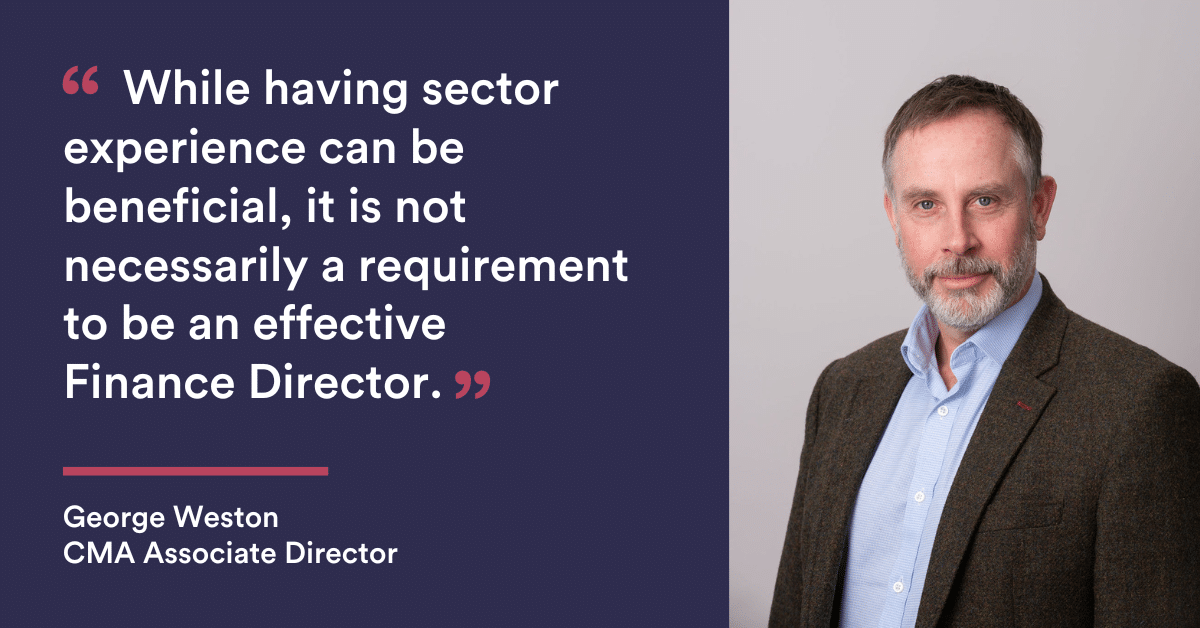Does sector experience really matter as a Finance Director?
In my role as part of the Executive search division here at CMA, I frequently get asked this question: Does sector experience really matter as a Finance Director? In this article, I’ll take a deeper dive into this question and offer my advice to aspiring Finance Directors looking to take the next steps in their career.
How do I differentiate myself in the market?
Should I just focus on businesses within the sector I know? Why do I get knocked back at final interview stage, with the feedback often being ‘there was nothing between the final two candidates, the other individual just has experience in our sector’.
These questions are something I have been asked by candidates many times, and the answer to this is multifaceted, situational and will change depending on the actual sector we are mandated to work in at the time.
The importance of transferrable skills
While having sector experience can be beneficial, it is not necessarily a requirement to be an effective Finance Director. The role of a Finance Director primarily involves overseeing financial operations, strategic planning, budgeting, financial analysis, and reporting. These skills are transferrable across industries, and a competent finance professional can adapt and learn the specific nuances of a particular sector.
The advantages offered by sector experience
There are certain advantages to having sector experience as a Finance Director. Familiarity with the industry can provide insights into its unique financial challenges, regulatory requirements, and competitive landscape.
- It can help in understanding industry-specific metrics, trends, and risks, which can be valuable when formulating financial strategies and making informed decisions.
- Additionally, sector experience can facilitate credibility and effective collaboration with other departments and stakeholders.
- It allows Finance Directors to better understand the specific needs and goals of the business, communicate financial information in a relevant manner, and contribute to strategic discussions much more quickly.
Understanding why sector experience is important to the client
Sector is one of the leading criteria that clients highlight when briefing us on a role. With such a critical hire, I can understand that the client wants to de-risk the appointment as much as possible, but sector experience alone will not guarantee a successful outcome.
Our skill is to draw out from the client during the briefing meeting the WHY.
To do this, we discuss, debate, and challenge:
- Any preconceptions,
- The Vision (three to five-year business plan),
- Strategic objectives,
- Culture, values and behaviours
- And the capability of the current Board and Senior Leadership team.
Armed with all this information, we can then share insights into the talent pool and their expectations, along with regional market conditions and complimentary sectors, ensuring we are aligned and that we can present the best talent possible for the position.
In summary, while sector experience can enhance the effectiveness of a Finance Director, it is not the sole determinant of their success. Strong financial acumen, strategic thinking, leadership abilities, and the capacity to learn and adapt are crucial qualities for an effective Finance Director, regardless of sector experience. Sometimes in just boils down to ‘FIT’.



